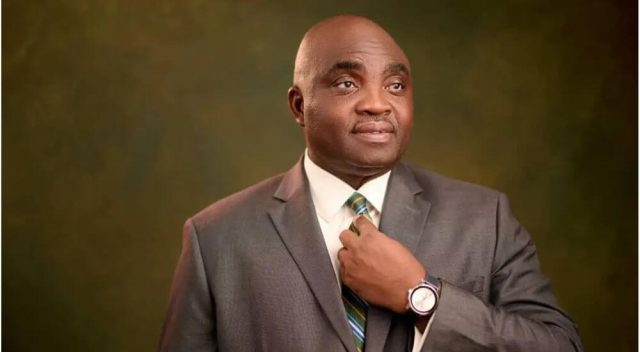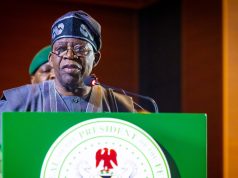The head of Nigeria’s infrastructure regulatory body has said that no Public-Private Partnership (PPP) contracts have been cancelled since President Bola Tinubu assumed office in May 2023, contrary to growing speculation.
On Friday at the Nigeria Public-Private Partnership Summit 2025 in Abuja, the Director General of the Infrastructure Concession Regulatory Commission (ICRC), Jobson Ewalefoh, said the current administration has opted to review and adjust existing agreements instead of scrapping them.
“There is no PPP project cancelled since President Bola Tinubu came into office,” Mr Ewalefoh said.
“What we have been doing is to renegotiate some of the contracts in view of the present realities. Even the ones that attempts were made to cancel, he has directed them back to us that we should find a way to make them work.”
Mr Ewalefoh said PPP agreements must be treated as evolving frameworks rather than rigid documents, especially given Nigeria’s changing economic conditions. He argued that insisting on perfection in concession terms often leads to policy paralysis or project failure.
“Let’s move away from trying to have a perfect concession on PPP agreements. It can never be perfect because the dynamics are not static—they evolve as time goes on,” he said.
The ICRC boss called for more flexibility in the design and review of contracts, noting that feasibility studies often fail to capture long-term uncertainties.
“When projects fail, we often attribute it to poor feasibility studies or political interference. However, I believe we need to have in-depth research into how we categorise these studies, considering the changing economic landscape,” he added.
A separate session analysed case studies from Africa, including the Lekki Deep Sea Port in Nigeria, the Sene-Gambia Bridge, and a wind power project in Cape Verde. Poor planning, weak risk management, and lack of community involvement were identified as recurring barriers.
Lamin Fatty, director of PPP in Gambia, argued that governments are often not well-equipped to manage revenue-generating assets. “99.9% of all assets that generate income are not being managed effectively by the government. It’s better to hand them over to the private sector, which can manage them more effectively,” he said.
ALSO READ: Reps panel gives NRC seven days ultimatum to submit PPP documents
The ICRC, set up to guide, monitor and regulate PPPs in Nigeria, has played a central role in shaping infrastructure delivery models in transport, energy, health, and ICT. The summit, themed “Unlocking Nigeria’s Potential: The Role of Public-Private Partnerships in Delivering the Renewed Hope Agenda”, brought together regulators, investors and private operators to discuss reforms and partnerships.
Mr Ewalefoh reiterated that Nigeria’s future infrastructure success depends on how well both sectors can adapt contracts to shifting economic conditions without undermining the spirit of partnership.
Support PREMIUM TIMES’ journalism of integrity and credibility
At Premium Times, we firmly believe in the importance of high-quality journalism. Recognizing that not everyone can afford costly news subscriptions, we are dedicated to delivering meticulously researched, fact-checked news that remains freely accessible to all.
Whether you turn to Premium Times for daily updates, in-depth investigations into pressing national issues, or entertaining trending stories, we value your readership.
It’s essential to acknowledge that news production incurs expenses, and we take pride in never placing our stories behind a prohibitive paywall.
Would you consider supporting us with a modest contribution on a monthly basis to help maintain our commitment to free, accessible news?
TEXT AD: Call Willie – +2348098788999










